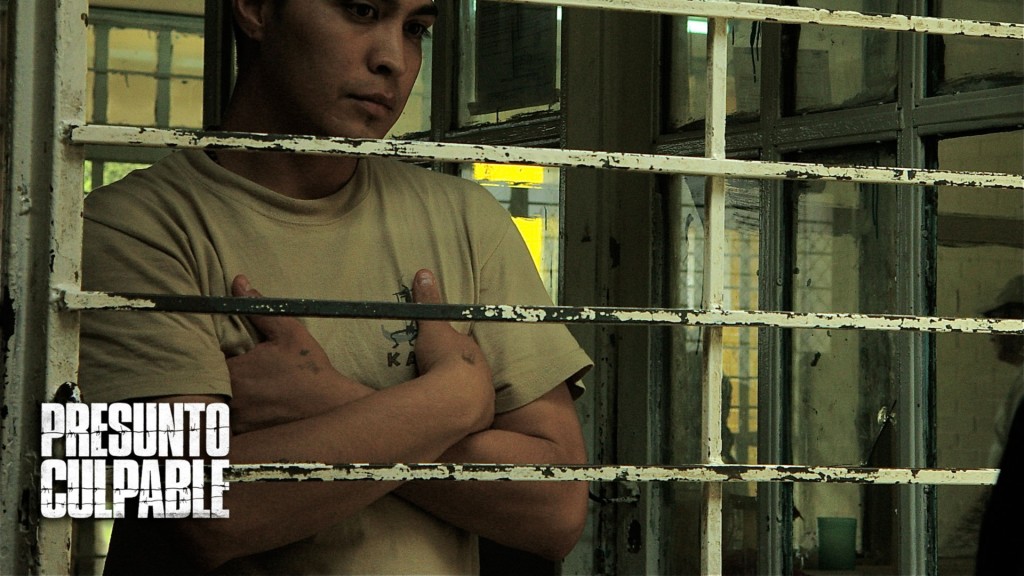
Official poster of documentary Presumed Guilty. Image available for download from film site's press kit.
Mexican judge Blanca Lobo Dominguez ordered theaters to temporarily halt screenings of the popular Mexican documentary Presunto Culpable [es] (Presumed Guilty). The reason behind the ruling is that Victor Manuel Reyes Bravo, one of the prosecution witnesses in the documentary, states he did not give the filmmakers authorization to record him and appear in the film.
The documentary reveals a case where Mexico’s justice system appears weak and deteriorated. This is shown through the story of Antonio Zuniga, who is charged with murder in 2005. Throughout the movie the case is overturned, as the information used for condemning him does not add up.
On the blog Gancho the popularity of the documentary is affirmed:
I'd previously read far more about Presumed Guilty, a documentary about what appears to be a truly heinous miscarriage of justice in the Mexican court system, in the US media. However, Milenio says it has turned into that rarest of things: a documentary enjoying box-office success in Mexico. With the support of Cinépolis, the largest theater chain in the country, in its first weekend, Presumed Guilty earned 6.4 million pesos. This is only $500,000 or so, but it's already halfway to being the most successful documentary in Mexican history.
Teacher and blogger Octavio Islas expresses concern about how freedom of expression [es] would be affected through the screening halt of the documentary:
La suspensión en las exhibiciones de la película Presunto Culpable sería un atentado a la libertad de expresión. En esa cinta se muestran escenas de un proceso judicial que fue público. Los hechos allí registrados son de interés público –atendiendo al principio de máxima publicidad establecido en la Constitución– y su divulgación no requiere del permiso expreso de las personas que participaron en tales audiencias.

"Toño," short for "Antonio," the protagonist. Image available for download from film site's press kit.
Alejandro Ortiz Sotomajor writes about the censorship theories [es] being discussed:
Esta claro que no hay que pensar mucho para poder llegar a varias conclusiones, la principal y que anda en prácticamente boca de todos es que el sistema judicial no quiere que se saque a la luz todas la irregularidades en su administración y su forma de resolver los juicios.
The filmmakers, in an announcement posted on their website [es], state that the documentary will continue to be shown until they receive a government or judicial order. In the United States, the whole movie can be watched online through the PBS website until March 31, 2011.






